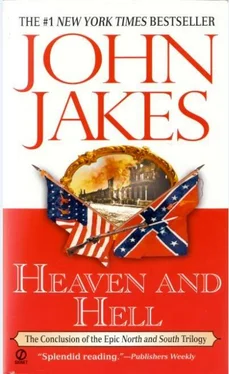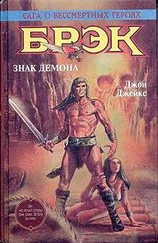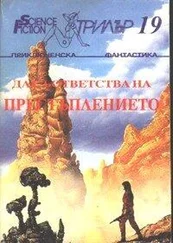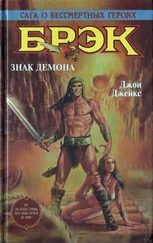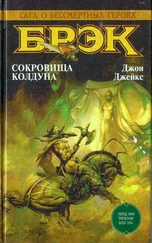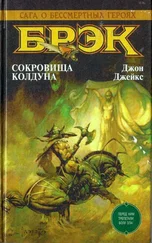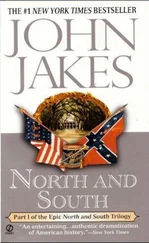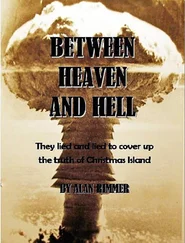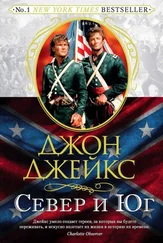"You were a good one, though."
Charles didn't comment. "About this place — I feel sort of fond of it now that I'm no longer part of it."
"Except through your boy."
"Well, yes. I had some doubts about letting him enroll. It's a fine education, that's what persuaded me. He can resign after he serves his hitch."
"Certainly. There won't be any more wars to fight."
"That's what everyone says."
"Don't you wonder what will happen to our two boys, Bison?"
"Sure. But I think I know. What will happen to them are the same things that happened to Orry and George. The same things that happened to us. Things we never expected. Things we couldn't have imagined if we tried for a week. Those are the things that always happen to people. Along with ordinary things."
"Like getting old." Billy rose, yawned. "I get so blasted tired anymore. Ready for supper?"
"Any time you are, Bunk."
Billy watched the ragged formation marching away to evening mess. "I'm proud I was here," he said, hooking his thumbs in the pockets of his gold brocade vest. "I'm glad my brother and your cousin met here. Without that, I wouldn't have Brett or my family. George wouldn't have Madeline. I wouldn't have my best friend."
So many births, Charles thought. So many deaths. So important. So inconsequential.
"Yes, I'm glad they met," he said. "I'd like to have seen them that day in 1842. I'll bet they were a pair. The ironmaster's boy and the rice planter's boy. Oh, I'd like to have seen that."
The West Point sunset gun boomed. The two friends went in to supper.
For his anger endureth but a moment: in his favor is life: weeping may endure for a night, but joy cometh in the morning.
Psalm 30
I form the light, and create darkness:
I make peace, and create evil:
I the LORD do all these things.
Isaiah 45
He had heard it said that Ned had never got over the war. ... Plenty of men hadn't.
Larry McMurtry, Lonesome Dove
With these last few paragraphs, the curtain comes down on The North and South Trilogy, a project that has occupied me for a little better than five years.
The first volume, North and South, dealt with the antebellum period, and endeavored to illuminate the slow, grinding buildup to conflict, as well as the complex causes of it. Love and War dealt with the war itself, four years that forever marked, not to say scarred, our national consciousness, and ultimately seized the imagination of the world. To this day the war exerts a magnetic appeal for millions. It was a rare, even unique combination of the old and the new; pitiless suffering and shining idealism. "War is hell," snapped Uncle Billy Sherman, amply covering the suffering. The idealistic aspect was well characterized in 1884 by Oliver Wendell Holmes. Recalling his war experiences (captain, 20th Massachusetts), he said, "Through our great good fortune, in our youth our hearts were touched with fire. It was given us to learn at the outset that life is a profound and passionate thing."
The change in our country during the four years of war was apocalyptic. As a footnote, it's interesting to me that no one thus far has identified my metaphor for this change in the text of Love and War, the horses. Images of horses appear constantly in the novel. The very first image after the Prologue is that of sleek black horses galloping in a sunlit pasture. The last image is that of buzzards feasting on the remains of a black horse lying beside a railroad track. It seems that authors spend time on literary devices at their peril.
In Heaven and Hell I shifted the focus westward because I felt the sweep of historical events demanded that. At the same time, I wanted to detail something on the full-fledged civil-rights revolution, usually called Radical Reconstruction, that was won and lost in the years immediately after the Civil War. Historians generally designate 1876 as the end of Reconstruction, coincident with "redemption" — that is, return to a Democratic, all-white state government — in South Carolina, the last of the Southern states to be "redeemed," in this case by the so-called Mississippi or Shotgun Plan. In the state where it all began, with John Calhoun propounding his nullification doctrine, it ended.
I have no quarrel with this use of 1876 as the end point. But while I was engaged in reading and research, I began to see the great wave of Radical idealism and opportunism cresting and breaking eight years earlier, dashed back by the failure of Johnson's impeachment and a general Northern rejection of the civil-rights program of the Radicals. This was reflected in the 1868 elections when, as noted in the book, Republican majorities were sharply diminished, and several supposedly enlightened states in the North refused to pass a referendum on black suffrage — something Thad Stevens and his comrades in Washington were enforcing on the South by military means.
In the 1860s we were just not ready, as a people, to practice democracy without qualification. When Andrew Johnson, during his "Swing Around the Circle," told his Cleveland audience to clean up Ohio's house before attacking the South, he was booed and jeered. Even many avowed Northern Republicans — literary men such as the Freedmen's Bureau officer John William DeForest and the journalist Whitelaw Reid — couldn't keep condescension toward "darkies" out of their prose. Their work is full of racial stereotyping. Reid wrote, "Who has not admired the deep, liquid ox-eye of the Southern negro?" and "The ivories that were displayed would have driven a dentist to distraction." Despite Lincoln, despite the Radicals, despite amendments to the Constitution, white America remained racist after the war. The body politic rejected the new social order briefly implanted by a few visionary social surgeons.
The Reconstruction story is relevant to modern America. In January of this year, while I was putting the final draft through the computer, racial violence racked Forsyth County, Georgia. Peaceful marchers were threatened by a white mob just because they were black. Sometimes the lesson that history teaches is a sad one; that we are unable to learn from our past, and must repeat it endlessly, as Santayana warned.
In writing about Reconstruction, I do not mean to ignore another group that played a pivotal role in the novel. I refer to the original inhabitants of this country, the Native American Indians. During the period covered here, they were forced out of their lands at last, and effectively robbed of any chance to participate in the political process, by means of what we now call "genocide." The Indians are not the main ethnic concern of Heaven and Hell, but even so, I do not mean it to seem that I have given them what amounts to a historical shrug. Theirs is a tragedy I would like to deal with more fully, in another book, at a later time.
Of course, like the two novels preceding it, this one is meant first as a story, and only second as history (though as always, I never knowingly change or falsify the record for the sake of a plot). Some of the historical aspects of the novel do need brief comment.
I found the Kuklux (that was the customary spelling) a difficult subject to write about, in this sense. Southern victims of the Klan quite rightly considered its hooded members terrifying. Yet it's hard to look at hundred-year-old photographs of bed-sheeted Klansmen, or read their florid and pretentious handbills and newspaper announcements, without smiling. This duality isn't convenient for storytelling, so I am not certain that I accurately captured Klan activities. I do want to assure readers that the bits of ritual and fragments of printed announcements found in the book were not invented by me; they are authentic. General Nathan Bedford Forrest did not start the Klan, but it's generally conceded that he was Imperial Wizard for a couple of years, until violence got out of hand and he made a public statement ordering the Klan to disband.
Читать дальше
